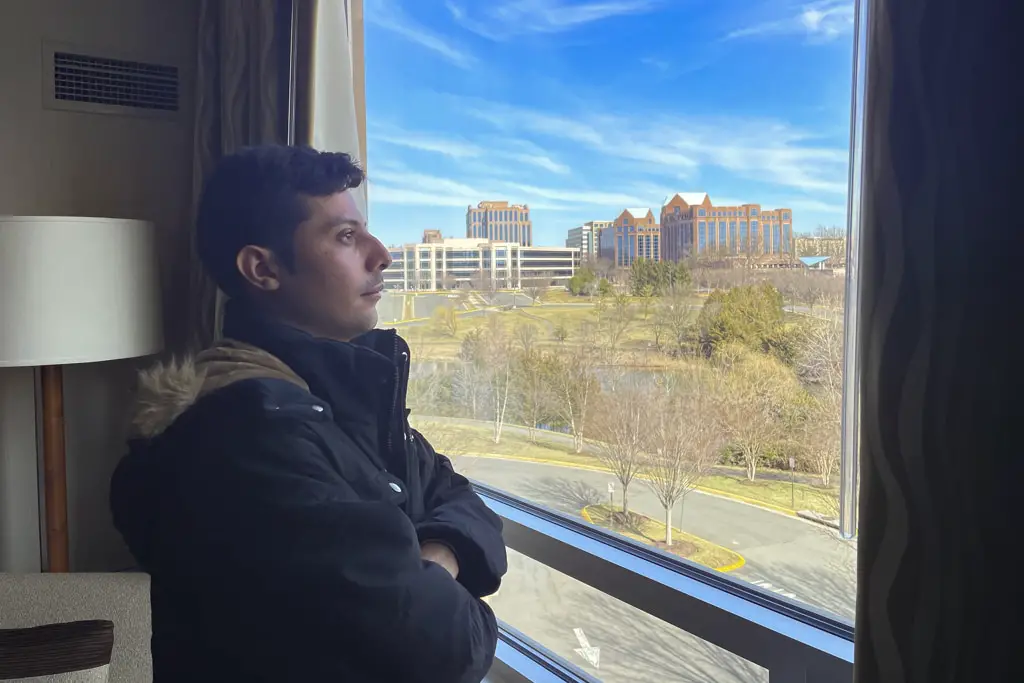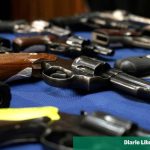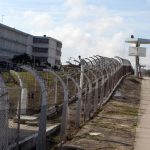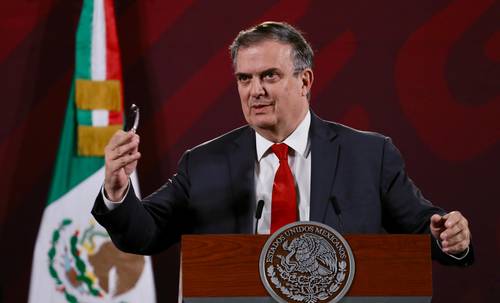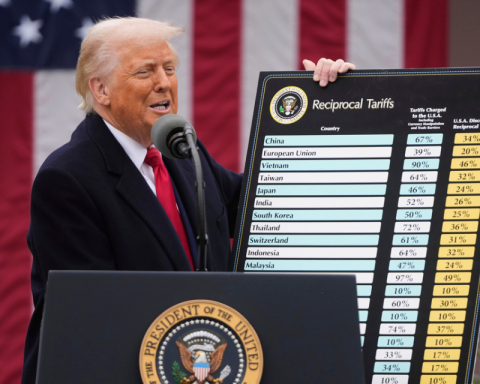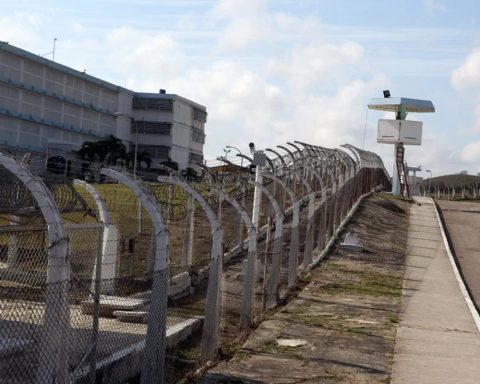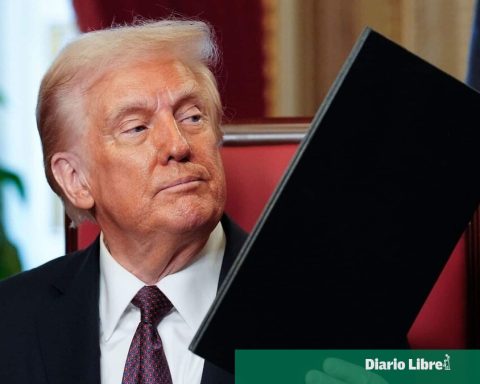Despite the year locked in a punishment cell, the death of his brother in the 2018 protests and the pain that his father is left alone in Nicaragua after Daniel Ortega expelled him from his country with 221 other prisoners politicians, Yader Parajón ensures that his will to fight remains intact.
“I am certain that they have not been able to cope with me and that I can handle more,” he told the Efe news agency in an interview in the hotel room that welcomed him during his first days in Washington.
Parajón is one of the 222 Nicaraguans who arrived in the North American country last Thursday after Ortega unilaterally decided to send a group of political prisoners detained in recent years on a plane to the US capital.
“Kidnapped”, specifies the young man, who was arrested in September 2021, after having become a media defender of human rights after the death of his brother in a protest.
Like everyone who boarded that flight, Yader left his homeland and nationality behind. Many, also to his family, an especially painful fact for the young man, since his father is alone in Nicaragua, with one son dead and the other expelled from his homeland.
Think of his father, Miguel, It was what helped him not to sink when he was locked up: “The man had already lost a son and I had to resist because I couldn’t leave him alone,” he explains.
Escaped from “the claw”
As the Government of Joe Biden has promised them, they will be able to benefit from family reunification. “They say that we will be able to bring the close family, but my father I don’t know what decision he would make; He feels that leaving Nicaragua is abandoning his son, because my brother’s body remains there,” he comments.
In the talk, Yader, 32, tells how Miguel, a few hours after learning of his release, cried with emotion in Managua when he came across the bottle that “once every one or two months” took him to the El Chipote prison. .
“He told me ‘I saw your bottles of water, it made me homesick and I started crying, because I was content to bring you water so you wouldn’t lack it. The distance hurts me, but I prefer that you be away from the clutches of these people’”, she narrates.
Five years after the burial of his eldest son, killed by a shot to the chest in the 2018 protests and a few days after the little one was released from prison after 17 months of horror, Miguel Parajón lives in a dichotomy, says Yader.
Relieved to have him safe, but sad not to see him again; scared to death of possible reprisals against him, but calm for his offspring, because he has already escaped “the claw”.
In the interview, Yader wears a colorful tracksuit with the rainbow flag, claiming his sexual diversity, he says, and a revealing caption: “I wish you were here” (I wish you were here). He bought it in a supermarket with the money they were given when they arrived, $300, along with some clothes and a phone that doesn’t stop ringing.
With the cheerful dress he tries to hide everything he has cried these days. “I am very tired and worn out physically and spiritually. Now I feel like I’m out in the open, because I don’t know how it’s going to go, because here you have to start from scratch, ”she explains.
In his room he keeps the clothes he arrived in: “Super tight black pants and a green T-shirt with a bow on the abdomen.” It’s the clothes his father brought him on his last visit to prison.
“I was the only fashionista on that flight,” jokes the young man, who was studying psychology at the Central American University (UCA) in 2018 when he began to get involved in student protests, tired of looking around and feeling suffocated and without a future.
He does not hold grudges and will fight again
Although he was one of thousands marching, he became fully involved after a bullet to the chest killed his older brother, who was participating in a university takeover, on May 11, 2018: “I didn’t want my brother’s blood will go unpunished,” he says.
Parajón became one of the most media faces of the Mothers of April Association and toured South America with the Caravan of International Solidarity with Nicaragua.
Upon returning his hell began. A constant police siege at the doors of his house for which he decided to move in secret and finally emigrate from the country.
But on the border with Honduras, in September 2021, they stopped him. They transferred him to El Chipote in Managua, where he spent a whole year locked up, with another prisoner“in a punishment cell measuring two meters by two meters, the size of that piece of furniture,” he says, pointing to a sideboard in the room.
Despite everything, he assures that he no longer holds a grudge and that when he passes his “mourning” process he will fight again. “When my country demands a public service from me, I will be there, honoring the memory of my brother.”
Hopeful, he summarizes the majority sentiment of the last few days at the hotel: “There is a great desire to continue fighting, to want to see that Nicaragua free that bets on a true and stable democracy. Those of us who believe in that are not going to give up”.
